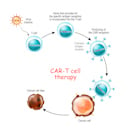
Nursing Drug Guide: Look Before You Crush!
Medical errors continue to be at the forefront of the news and in the minds of consumers. According to The Joint Commission (TJC), about 1.5 million preventable adverse drug events happen in the U.S. each year, of which about 400,000 occur in hospitals. The Joint Commission’s National Patient Safety Goal on Safe Medication Administration, is focused on the importance of developing standardized processes for prescribing, dispensing, monitoring and educating patients on high-risk medications.
Daily Medication Administration
Much attention has been focused on high alert medications, but what about those everyday capsules and tablets that we administer routinely, and often consider crushing, opening or instructing the patient to chew to aid administration?
Before you crush, open or cut any medication, assure that in doing so, you will not alter the action of the medication or cause unintentional, harmful effects. By altering the original form of a drug, the pharmacokinetics of that drug may be altered. Always remember to check the manufacturer’s instructions if you are unfamiliar with a particular drug, and follow the recommendations explicitly.
Never crush enteric-coated medications because the coating serves a purpose. It may disguise a bitter taste, prevent irritation of the mouth or staining of the teeth and oral mucosa, and prevent irritation of the stomach lining. It also serves to prevent stomach acid from destroying the drug. The enteric coating also delays the onset of the action of the drug, and protect against exposure to carcinogens or teratogens. Some enteric-coated drugs are available as enteric-coated sprinkles. Find out if that option is available for your patient who cannot swallow an enteric-coated tablet.
Extended-release preparations are another category of drugs that should not be modified in any way prior to administration. If you crush or cut extended-release medications that are intended to remain intact, the patient initially receives an overdose. Subsequently, the patient receives an insufficient level to obtain or maintain the desired effect. Extended-release medications are often ordered for elderly patients since the less frequent dosing increases the ease of remembering to take the medications and makes compliance more likely.
In addition, the specific requirements for administration of a particular drug should always be considered, such as the need to administer a drug with food or on an empty stomach, at night or in the morning; and with or without another medication or food to prevent drug and food interactions.
Medications to be chewed, such as antacids, should never be altered in any form either. If a patient cannot chew adequately, obtain an order for an alternative dosage form such as a liquid.
How to Avoid Medication Adversity
You play the role of patient advocate, safety advocate, and informed professional. As such, you should never crush or open a medication without consultation with the pharmacist. When you identify a need or opportunity to improve your patient’s medication profile, gather the data and then raise your concerns with your team members. Studies have shown that consultation with pharmacists and active involvement of unit-based pharmacists, dramatically decrease medication errors and adverse drug reactions.
To learn more, check out RN.com’s Medication Safety and Administration courses.
© 2015 AMN Healthcare, Inc. All Rights Reserved.




